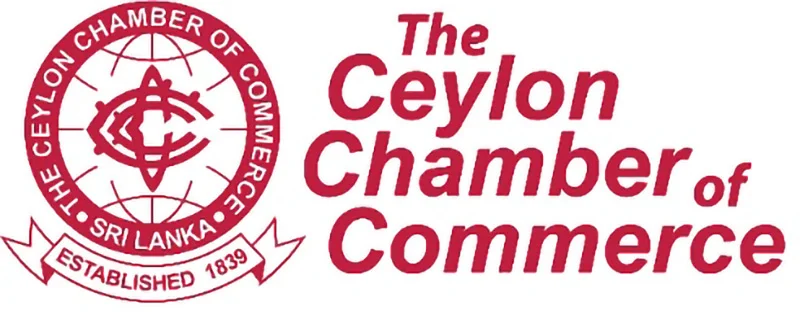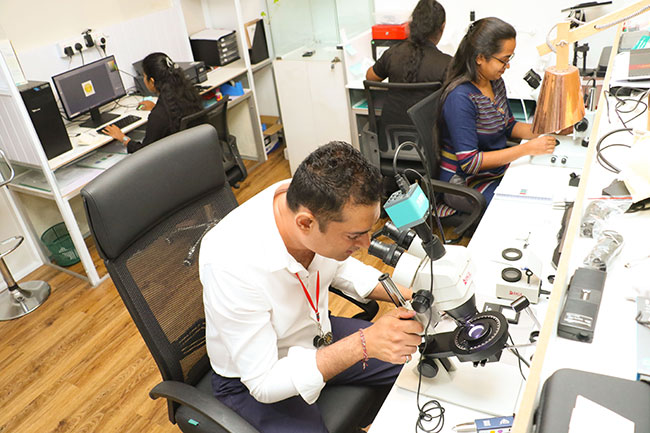Business
‘2025 Budget targets inclusive growth through bold reforms’

The Ceylon Chamber of Commerce welcomes bold proposals in the budget that align with its recommendations, Sri Lanka Economic Summit discussions, and Vision 2030 goals. The 2025 Budget focuses on stability, governance, public relief, tackling corruption, and driving inclusive growth. The Budget emphasises infrastructure expansion through Public-Private Partnerships (PPPs) and digital economy initiatives, providing a strong foundation for transformation.
The Chamber appreciates the Government’s recognition of the need to reform the Customs Ordinance and the implementation of the National Single Window, both crucial for enhancing trade facilitation and improving the ease of doing business. We also acknowledge the planned implementation of the Economic Transformation Act with amendments and the introduction of legislation on Public-Private Partnerships (PPPs). Timely execution of these reforms will create a more conducive environment for private sector investment in key sectors such as ports, tourism, and infrastructure, as highlighted in the budget speech.
Policy Continuity: Taxation and Fiscal Framework
The Chamber commends the Government for maintaining policy consistency by retaining the existing tax framework and avoiding ad-hoc tax measures to match the expenditure proposals. Adhering to the Public Financial Management Act, which caps primary expenditure at 13% of GDP, is a positive step toward rebuilding investor confidence and strengthening Sri Lanka’s global credit standing. Ensuring tax stability during the year and simplifying compliance will be crucial for fostering a competitive business environment.
Bold Reforms Requires
Timely Implementation
The above-mentioned bold reforms require time-bound implementation to translate the Budget’s vision into a reality that will be felt by the public. For example, projects like the National Single Window which has been a request from the private sector for over two decades require commitment by the Government on the implementation plan.
The Chamber welcomes the plan to establish a holding company for SOEs, aligning with global best practices to improve governance, financial discipline, and efficiency. Its success will depend on clear timelines, independent oversight, and transparency. The focus on digitalisation and e-governance is also a positive step, with initiatives like the Unique Digital ID and the setup of an Apex Digital Economy Authority to reduce bureaucracy and enhance transparency.
Specific Proposals Require Consultation Prior to Implementation
The transition from the current SVAT system to a risk-based refund system requires careful execution, including stress-tested pilot programmes to ensure a robust and efficient refund process. The changes to the minimum wage for private sector should be carried out in a consultative process and align with business sustainability and broader labour reforms that advocate for higher women’s economic participation and flexible work.
The budget prioritises investment-driven growth but needs stronger support for MSMEs, vital for jobs and resilience. While Rs. 254 billion is allocated for agriculture, a clear strategy for modernisation, value chains, and climate resilience, is crucial. Policies on sustainable farming, irrigation, and private-sector agro-processing, must be strengthened to counter climate change impacts.
Alignment with Chamber Recommendations and Vision 2030
The Government’s emphasis on investment-led growth, trade, digital transformation, and public sector reform, align with the Ceylon Chamber’s recommendations. While the 2025 budget effectively addresses fiscal consolidation, investment facilitation, and governance, its success depends on efficient time-bound implementation, policy stability, and stakeholder collaboration. The Chamber remains committed to working with the Government to refine and execute these policies, ensuring a resilient, inclusive, and globally competitive economy.
Business
‘With AI around, hardly anyone does any real work,’ says university don

While the corporate world celebrates the merger of efficiency and ecology, a leading academic last week issued a sobering warning: the very technology driving the next “Green Revolution” may leave the human workforce behind.
Speaking at the recently concluded Green Productivity Awards, organised by the Sri Lanka Association for the Advancement of Quality and Productivity (SLAAQP), Professor Hiran Amarasekera of the University of Sri Jayewardenepura characterised Artificial Intelligence (AI) as a “godsend” for environmental sustainability – but one that carries profound social risks.
Professor Amarasekera’s keynote address cut through the celebratory atmosphere, targeting a perceived complacency among top-tier management.
“Managers are already using AI, but many CEOs, directors and managing directors remain sceptical,” he observed. “They think AI will come in another five years. No, it is already here.”
According to the Professor, AI is no longer a futuristic concept but a functional tool currently revolutionising green metrics. He highlighted how the technology is already replacing manual monitoring for energy optimisation, using predictive algorithms to drastically reduce industrial waste, and automating sustainability reporting – turning months of consumption data analysis into a task of mere seconds.
While these advancements provide a massive boost to the “bottom line” and help organisations meet the national Net Zero pledge, Prof. Amarasekera warned of a looming “danger”: the displacement of human workers.
“AI is boosting productivity while cutting back the need for human resources. What will happen to the jobs and the wider society? Not even the USA or other advanced economies have an answer to this,” he noted.
In a moment that elicited both laughter and reflection from the audience, he touched upon the irony of modern higher education: “Students produce their work through AI and we detect plagiarism through AI. So, with AI around, hardly anyone does any real work!”
The technological warning was balanced by the moral urgency of Senior Professor Ajith de Alwis from the University of Moratuwa. Invoking the words of David Attenborough, Prof. de Alwis asked the audience how they would look into the eyes of their grandchildren if they knew of the world’s collapse and did nothing.
The takeaway message of the evening was clear: While AI provides the tools to save the planet, human leadership remains the only force capable of managing the social consequences of that salvation.
Despite the warnings of future challenges, the SLAAQP awards proved that Sri Lankan industries are currently making notable strides. The event recognised 38 organisations – including 28 Gold Award winners – across sectors ranging from plantation, garments and rubber to poultry and textiles.
These winners were evaluated on four critical pillars: Leadership, Environmental Sustainability, Productivity Enhancement and Social Contribution.
By Sanath Nanayakkare
Business
Gemological Report of Ceylon sets new global benchmark for local gemstone certification

Steps into a critical void to earn recognition in international markets
For decades, Sri Lanka has been globally revered as the “Island of Gems,” yet the industry has long grappled with a paradoxical challenge: while the Sri Lankan soil yields the world’s finest stones, the local certification process has often struggled to command the same recognition in international markets.
Stepping into this critical void is the Gemological Report of Ceylon (GRC). Located at No. 97, Galle Road, Colombo 3, this newly launched laboratory is on a mission to redefine the standards of local gem certification, ensuring that the “fatherhood” of Sri Lankan gemstones remains firmly within its home soil.
Founded by Milinda Edirisinghe, a seasoned gemologist with over 20 years of experience in mining, trading, and geological study, GRC is the result of a lifelong observation of the industry’s “trust gap.”
“I saw a critical disparity,” says Edirisinghe, who received specialised training in Thailand, the global hub for gemstone treatments. “Sri Lankan exporters often face unfair skepticism in markets like Thailand, Hong Kong, and the US. International buyers often view local reports with doubt. I launched GRC to provide a local institute that is on par with the highest-caliber laboratories in the world.”
He made these comments while speaking to media at the new laboratory.
According to him, in its first month of operation, GRC has already seen a surge in demand, processing 30 to 40 stones daily – a success driven largely by its word-of-mouth reputation.

Milinda Edirisinghe performs a sensory inspection of a gemstone using a loupe to assess its initial characteristics
“The lab’s rapid growth is built on a foundation of total transparency. Unlike traditional setups, GRC employs a rigorous triple-blind screening process: three independent gemologists evaluate each specimen – from Sapphires, Ruby and Emeralds to semi-precious stones, polycrystals, rare meteorites, and even organic materials like natural Pearls, and rare coral species etc., used in high-end jewelry. By evaluating the stones without consulting one another, the three gemologists’ independent findings are then synthesised into a final, authoritative and error-free assessment,” he explained.
“As gemstone treatments become increasingly sophisticated – ranging from Beryllium diffusion to evolving heat and irradiation treatments – the need for advanced technology is paramount. GRC’s facility is equipped to identify the full spectrum of enhancements, ensuring the end consumer knows the exact “human intervention” history of their asset,” he further said.
However, Edirisinghe maintains that technology is a tool, not a replacement. When asked if AI could eventually handle the certification job alone, he noted:
“AI already assists our workflow to an extent, but a human gemologist remains an indispensable part of the process. Just as a surgeon uses advanced technology to enhance precision, they must still be present to execute the nuances of a complex operation. AI cannot truly ‘see,’ touch, or feel the soul of a stone.”
He further added, “AI can support our findings, but it cannot replace the gemologist’s ‘eye-view’ and the tactile senses that go a long way in issuing an accurate certification.”
Furthermore, GRC leverages an international expert network. “If we encounter a complex inclusion, we utilize virtual screen-sharing with leading labs in Thailand for real-time peer review,” Edirisinghe explains. “Our conclusions are science-based facts, not just opinions.”
Beyond technical excellence, GRC serves a vital economic purpose. Historically, local dealers spent thousands of dollars obtaining international certificates. GRC offers these world-class reports at a fraction of the cost, with detailed certificates starting from LKR 15,000 for full reports, a medium report at LKR 6,000, “memo cards” at LKR 1,500, and verbal opinions for LKR 500.
“By providing a credible, globally-recognised home-based laboratory, we are stemming the outflow of foreign currency to international labs,” said Edirisinghe.
With plans to participate in upcoming exhibitions in Dubai, Hong Kong, and the USA, GRC is positioning itself as a global contender. As the industry shifts toward “knowledgeable customers” who view jewellery as a liquid asset, GRC stands ready to provide the clarity and integrity the Sri Lankan gem industry deserves.
“If Sri Lanka produces the best stones in the world, it is only right that we also provide the world-class expertise to certify them. Our mission is to ensure that the ‘fatherhood’ of these precious stones remains in Sri Lanka, backed by a certificate that is respected from the USA to the European Union,” Edirisinghe said in conclusion.
By Sanath Nanayakkare
Business
Ministry of Brands to launch Sri Lanka’s first off-price retail destination

Sri Lanka’s retail landscape will reach a major milestone with the launch of Ministry of Brands (MOB), the country’s first off-price retailer. The flagship store is set to open on 16 February 2026, introducing Sri Lankan consumers to authentic global luxury and premium brands at discounts of up to 90% off original retail prices.
Backed by Akbar Brothers, Ministry of Brands brings the globally established off-price model to South Asia for the first time. The concept allows customers to shop for genuine designer and brand-name products at significantly reduced prices while supporting more sustainable retail practices.
The 10,000 sq. ft. flagship store, located at 28/9, Vajira Road, R.A. De Mel Mawatha, Colombo 4, will feature an extensive range across apparel, footwear, handbags, accessories, homeware, and more. Ministry of Brands will carry over 2,000 international and designer brands spanning womenswear, menswear, childrenswear, home, and accessories, including names such as Gucci, Ferragamo, Valentino, Michael Kors, Ralph Lauren, Burberry, Rag & Bone, Lacoste, Puma, UGG, HOKA, Brooks, Air Jordan, and many more.
Off-price retail is one of the fastest-growing global retail segments, helping fashion houses responsibly manage excess inventory. With the UN Environment Programme estimating 92 million tonnes of textile waste generated annually, sustainable retail models such as off-price are increasingly important.
“Sri Lanka manufactures for many of the world’s leading designer labels, yet these products have often remained out of reach for local consumers,” said Director of Ministry of Brands, Aamir Akbarally. “Through off-price retail, we are proud to make genuine designer brands more accessible to our fellow Sri Lankans, offering premium fashion at affordable prices while delivering a world-class shopping experience built on Akbar Brothers’ longstanding values of integrity, quality, and trust.”
Ministry of Brands Director, Ramzey Hammoud added: “With decades of experience in off-price retail, we see this as an exciting new growth chapter for Sri Lanka’s retail landscape. Our goal is simple: to allow customers to shop global designer brands locally at the best prices, while rediscovering the thrill of the find through a constantly changing, treasure-hunt shopping experience.”
Following the Colombo flagship launch, Ministry of Brands will open a second location at the One Galle Face Mall, with plans to expand across South Asia and Australia.
-

 Life style2 days ago
Life style2 days agoMarriot new GM Suranga
-

 Midweek Review6 days ago
Midweek Review6 days agoA question of national pride
-

 Features2 days ago
Features2 days agoMonks’ march, in America and Sri Lanka
-

 Business6 days ago
Business6 days agoAutodoc 360 relocates to reinforce commitment to premium auto care
-

 Opinion5 days ago
Opinion5 days agoWill computers ever be intelligent?
-

 Features2 days ago
Features2 days agoThe Rise of Takaichi
-

 Features2 days ago
Features2 days agoWetlands of Sri Lanka:
-

 Business15 hours ago
Business15 hours agoMinistry of Brands to launch Sri Lanka’s first off-price retail destination













